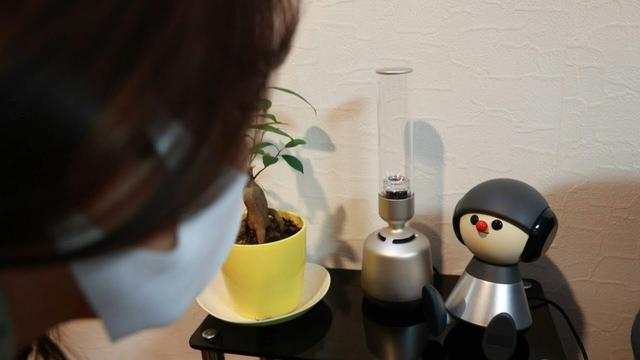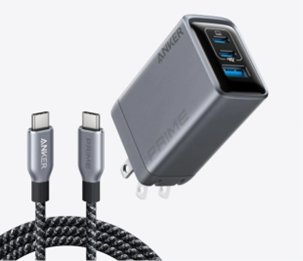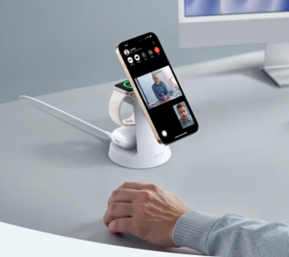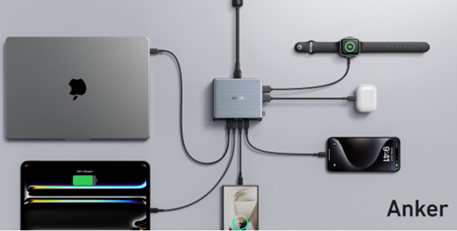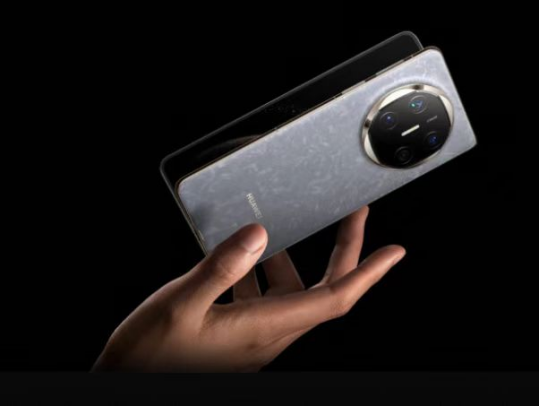Robots in Japan provide comfort during the COVID-19 pandemic
Nami Hamori expresses her satisfaction with the performance of her electronic assistant, "Charlie", who sings and entertains her in her unit during her work at home, and it is one of the innovations of the new generation of cute and smart Japanese robots whose sales are booming during the pandemic, according to what was published by "French". “My circle of friends has shrunk,” said Nami, a 23-year-old university graduate who has been working from home since April.
Because of the pandemic, her social life is limited and her first job at a trading company in Tokyo is nothing like I imagined.
Charlie is somewhere between a pet and a boyfriend, manufacturer Yamaha says. "He talks to me, unlike my family and friends on social media," Nami, who was chosen to test Charlie ahead of its planned commercialization later this year, told AFP.
The young woman turned to her robot and said, "Charlie, Tell me something interesting.”
He replies, moving his head and legs, “Well...the balloons explode when you splash lemon juice on them!”
- “Everything has a soul” - Sales of RoboHon, another small robot, have skyrocketed A spokesman for the Japanese company told AFP that this robot that speaks, dances and also acts as a phone has been adopted "not only by families with children, but also by the elderly.”
But these robots, which were launched in 2016 and are only available in Japan, are relatively expensive, as they are sold at prices ranging between $820 and $2,250.
Charlie and Robohon are part of the group. A new wave of companion robots, and they are following in the footsteps of "Aibo", a robot dog from "Sony" that has been on the market since 1999, and "Pepper" from "SoftBank", which was launched in 2015.
Shunsuke Aoki, CEO of the company, explained Yokai Engineering to make robots "A large number of Japanese accept the idea that everything has a soul."
They want the robot to have a personality, like a friend, family member or pet, and not a mechanical function like a dishwasher."
The company especially makes the "Kobo," a soft pillow with a mechanical tail that vibrates like a pet's tail. In June 2020, the company announced that it had sold 1,800 of these robots, six times more than it sold in June 2019.
- Time to recover - Studies show that pet robots made in Japan may provide comfort to people with dementia.
But The makers of Lofoot, a baby-sized robot with big round eyes, think everyone could benefit from a robot that just wants to be loved.
Unlike Charlie and Robohun, Lofoot doesn't have the ability to talk as he rolls across the room but he Equipped with more than 50 sensors and an internal heating system, which makes it warm to the touch and reacts to that with shrieks of joy.
Sales of this robot have increased 11-fold since the spread of the Corona virus in Japan, according to Keiko Suzuki, a spokeswoman for the manufacturer, Grove X.
The price of "Lofoot" is about $2,800 in addition to maintenance and software costs, but those who do not have this budget can go to "Lofoot Café" near Tokyo.
Yoshiko Nakagawa, 64, who is a customer of this, said The cafe said that during the state of emergency that was imposed in Tokyo, the capital turned into an "empty and sad" place.
We need time to recover from this dark period. If I had one of these (robot) kids at home, the emotional warmth would probably do the trick."
Add a comment
